Saturday, January 20, 2007
BEHIND THE IRAQ / IRAN CAPTURE NEWS
The US released all of the SIX (not five as currently being reported) captured Iranian officials caught in a raid on a questionably-documented Iranian “consulate” in Erbil, in Iraqi Kurdistan, on or about January 10-11, 2007.
The Kurds, who are said to receive vast sums of hush money from Iran to allow contraband of arms and illegal drugs over the common border, had "designated" the location as a "diplomatic" building, whereas only the central Baghdad government has authority to grant diplomatic status to foreign entities or countries.
The smuggled arms apparently continue via Turkey and Syria to the HezbAllah in Lebanon, while the drugs flow through Turkey into Europe.
Here, it appears "money talks" louder than Kurdish national interests, since Iran and the Turks both gather increasingly large, well armed forces on their respective borders with Iraq's Kurdish region, in a mutual effort to prevent an independent Kurdistan from taking root.
The Kurdish "nation" lives in sizeable chunks of Turkey, Iraq and Iran, which would be lopped off from those countries to form a new "Kurdistan".
Iran has even shelled and fired missiles into this Kurdish region fairly recently.
The Iranian leader first to be released, under pressure from the Kurdish President of Iraq, Jalal Talebani, was understood to be Hassan Abbasi, the key Iranian figure in organizing Iran’s jihadist movement in Iraq.
And the mainstay for networking and funding various terror groups around the world. Such as the semi-defunct, dormant at best, November 17th group, which is credited with attacking the US Embassy in Greece.
The other five were released very quickly thereafter into Kurdish custody, and were given up without any real interrogation.
See Defense & Foreign Affairs Special Analysis, January 12, 2007:
It was understood, however, the US did seize computer equipment and documents from the Iranian facility.
There was also speculation that the “Hassan Abbasi” captured may not have been the key adviser to Iranian President Mahmoud Ahmadi-Nejad.
Significantly, however, the US is keeping details of the matter under close wraps.
Please note that "Abbassi" would not be travelling with documents issued to his pseudonym or -"nom de guerre" - of Hassan Abbassi, so proof would lie in photos not papers. All six were photographed before being handed over to the Kurds.
One report stated that US troops had captured Mohammad Jaafari Shahroudi (AKA “Rahimi”), a Qods Brigades (Special Islamic Iranian Forces used for overseas missions) operative wanted in Austria for the 1989 assassination of Kurdish leader Abdol Rahman Ghassemlu.
The Israeli website, Debka, reported that the most important capture in Erbil was Col. Far Hassami, whom was described as being number three in the Qods Brigades hierarchy, below Brigades commander Gen. Qassem Sulemaini.
According to this report, Hassami revealed under basic interrogation that a Col. Ghassem Abtahi was the Iranian Revolutionary Guard Corps (IRGC: Pasdaran) “overall commander of Tehran’s program to dominate Iraq”. Abtahi, was “the RG representative attached to the HezbAllah command in Lebanon in 2004 and 2005.
They were told he now operates out of the Fajr base in Ahwaz, capital of the southern Iranian oil province of Khuzestan.”
Hassami also named Col. Mohammad Ali Ibrahimi (AKA Mehdi Mohandess) “as responsible for smuggling Iranian supplies of arms and military equipment into Iraq”.
Subscribe to:
Post Comments (Atom)

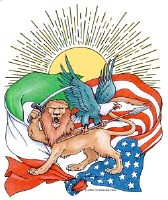
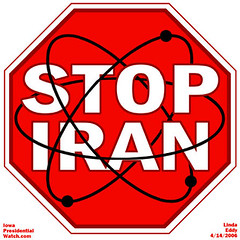

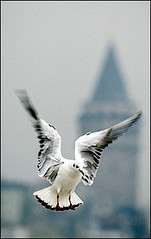



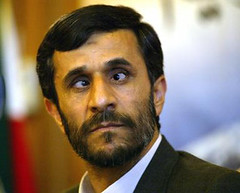

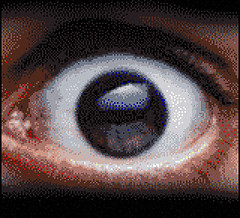



No comments:
Post a Comment